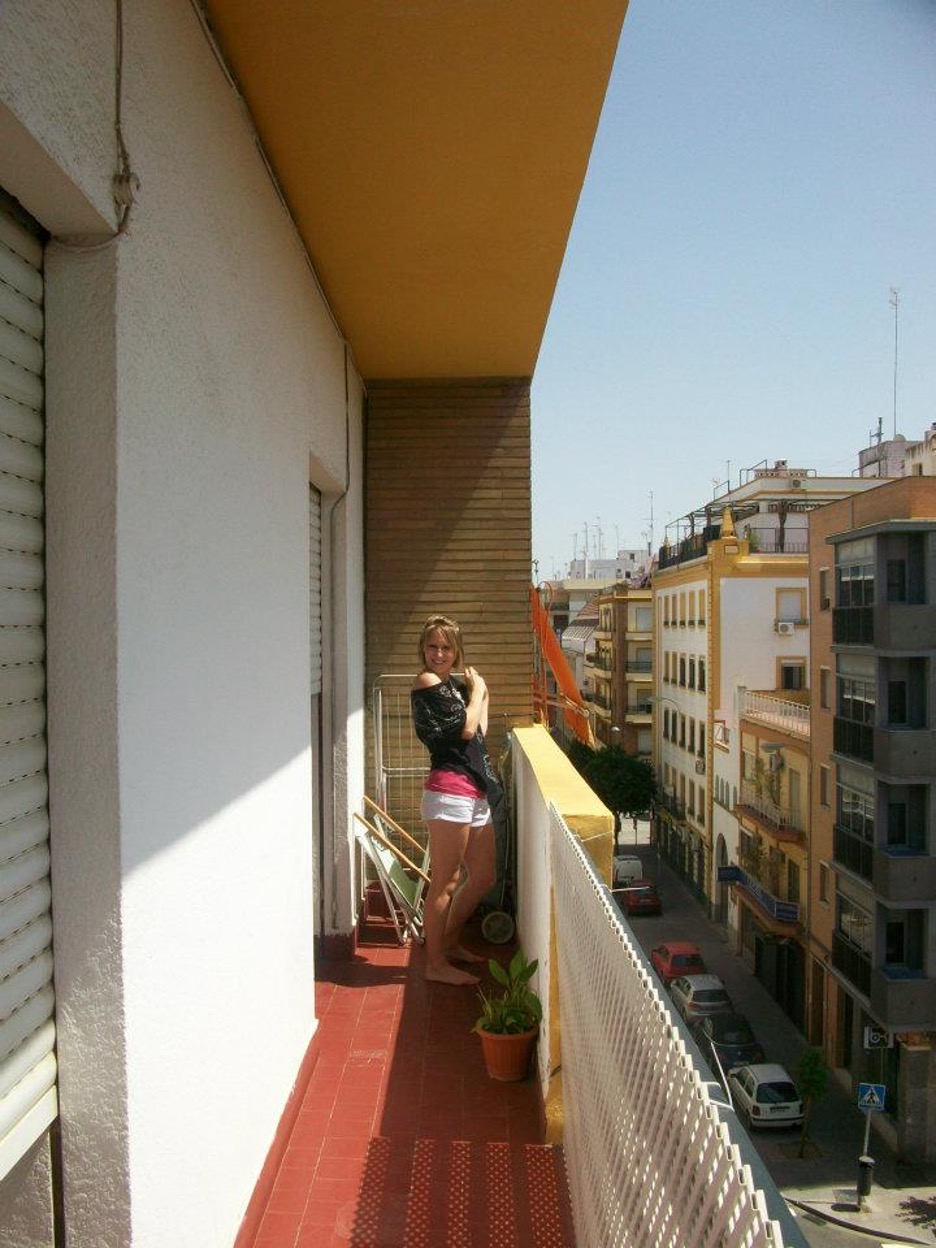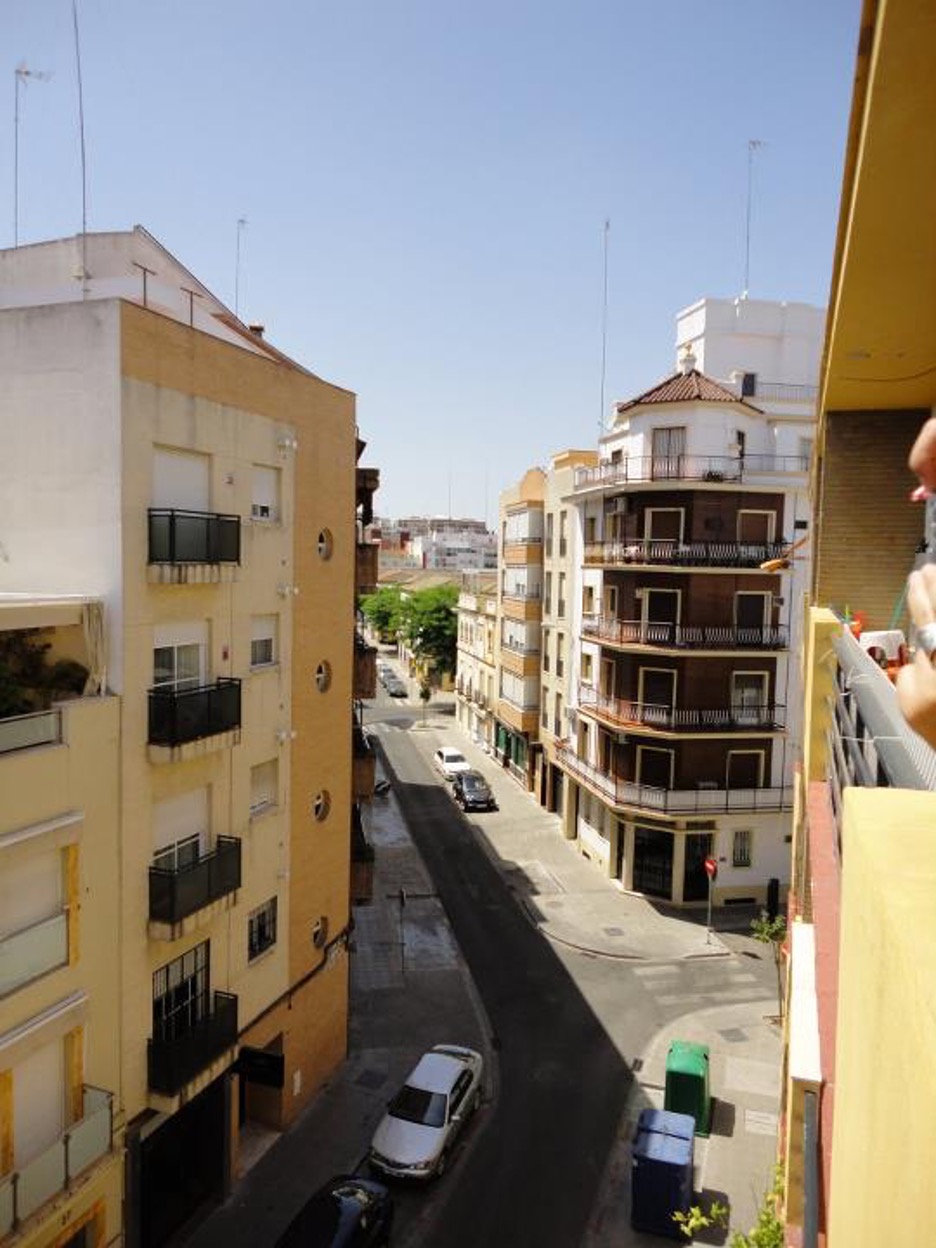Take a deep dive into the colorful culture of Seville with Student Life Coordinator Samantha Wasek!
***This is an example of an SLC’s experience from Spring 2022. Specific programming and activities are subject to change semester by semester.
I’m Samantha, one of your SLCs in Seville, and I’ll be here when you arrive to help you explore this special city and make the most of your semester (or year!) abroad. But while currently I serve as your guide in Seville, I started my journey here just like you, on a semester abroad. I loved it so much here that I decided to make Seville my home, and a decade later, here I am hoping to help you have as good a time as I did.
One of the reasons my study abroad had such an impact on me was undoubtedly because of my experience living with my host family, and if you think this might be for you, read on as I tell you all about it. Afterwards, you can also check out my list of the top ten advantages of living with a host family.
If there was one word to describe how I felt when I arrived in Seville for my study abroad semester in 2011, it would be nervous. Was I excited to be in Europe for the first time in my life? Yes. Was I thrilled that I’d finally get to put my years of Spanish study to work? Absolutely. And were the colorful houses and wrought iron balconies already exceeding my expectations? Yep.

In spite of all these positive aspects, my stomach was turning thinking that soon I’d meet my host mom, Carmen, and be under her wing for the next four months. I didn’t know how to be a long-term guest in someone’s home, especially when I hardly spoke her language. Luckily for me, I had a roommate who would be going through the same thing with me, so we braced ourselves for our first encounter with Carmen.
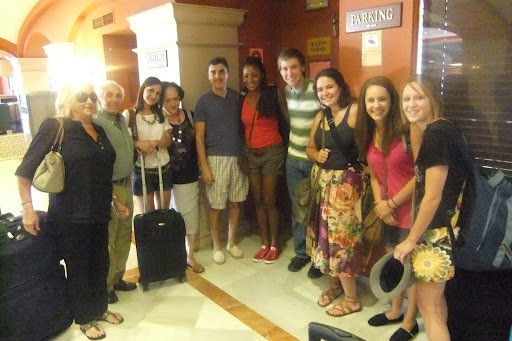
As it turned out, Carmen and her entire family treated us just like we were two of their own, and the reason I came to love Seville so much was because I got to live how Sevillians live. We’d wake up every morning to toast and coffee and come home to a lunch of lentil soup, chickpea stew, or paella, after which we’d watch cartoons with Carmen’s grandkids during siesta time.
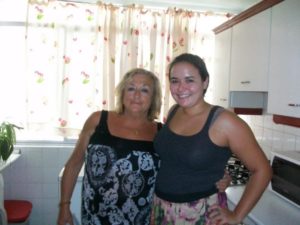
I have a large extended family, but we don’t all live near each other. With Carmen, I learned how important the tight knit family structure is here, and it’s more common to see than in the US. Carmen’s daughters would always drop by after getting off work to see how we all were doing, and she would make them food if they were busy. They were always there for each other, and they were there to help me out with anything I needed, too.
Carmen’s granddaughter, who was our age, helped us pick out what to wear to Seville’s biggest festival, the Feria de Abril. One time I was struggling to find a language exchange partner at my school, and Carmen said, “Don’t worry, I’ll be your partner!” And there are the countless times that she told me the best way to get to somewhere, the best place to eat in different parts of town, and explained why people do what they do here. She was my cultural interpreter.
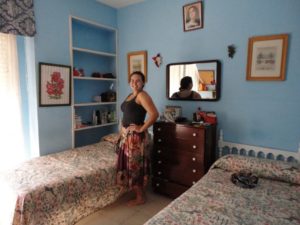
Overall, my experience with my host family helped me fall in love with the way of life of Seville, which I know I wouldn’t have had access to otherwise. Because of that, I was drawn to extend my semester-long program to two semesters, and then to move back to Seville permanently. It’s been over ten years since then, and looking back, I have my host family to thank for a lot of what I have today.
If you’re ready to live with a host family in Seville, here are some tips to help you feel more comfortable with your homestay experience:
- Bring your host family a gift. A great way to start off joining your host household for your semester is by showing your appreciation for their hospitality and expressing your goodwill without words. Don’t worry; it doesn’t have to be anything big or expensive! This can be a decorative item or non-perishable food related to your hometown or state that you think they would enjoy. If you take part in any creative hobbies, another idea would be to make them something yourself. And many Spaniards tend to like scented items like perfumes and lotions as well.
- Pack light. You most likely will not have a walk-in closet at your host family’s home. Spanish homes generally either have closets built into the walls or free-standing wardrobes, so bear that in mind when you prepare your luggage. You should focus on picking a few items that you can mix and match, and bring a coat for when it gets cold.
- Try new foods. Not every visitor to Spain can say they’ve tried authentic, home-cooked food… and you’ll be getting it three times a day! Some of the most typical dishes are things we don’t normally eat in the US. Think cold tomato soup served as a drink in hot months (gazpacho), rice cooked in squid ink (arroz negro), and eggs served for every meal except breakfast (tortilla de patatas, arroz a la cubana, revuelto con gambas). This is the food you won’t normally turn to for tapas, either, so even if you end up not liking these unfamiliar dishes, at least say that you got to try them.
